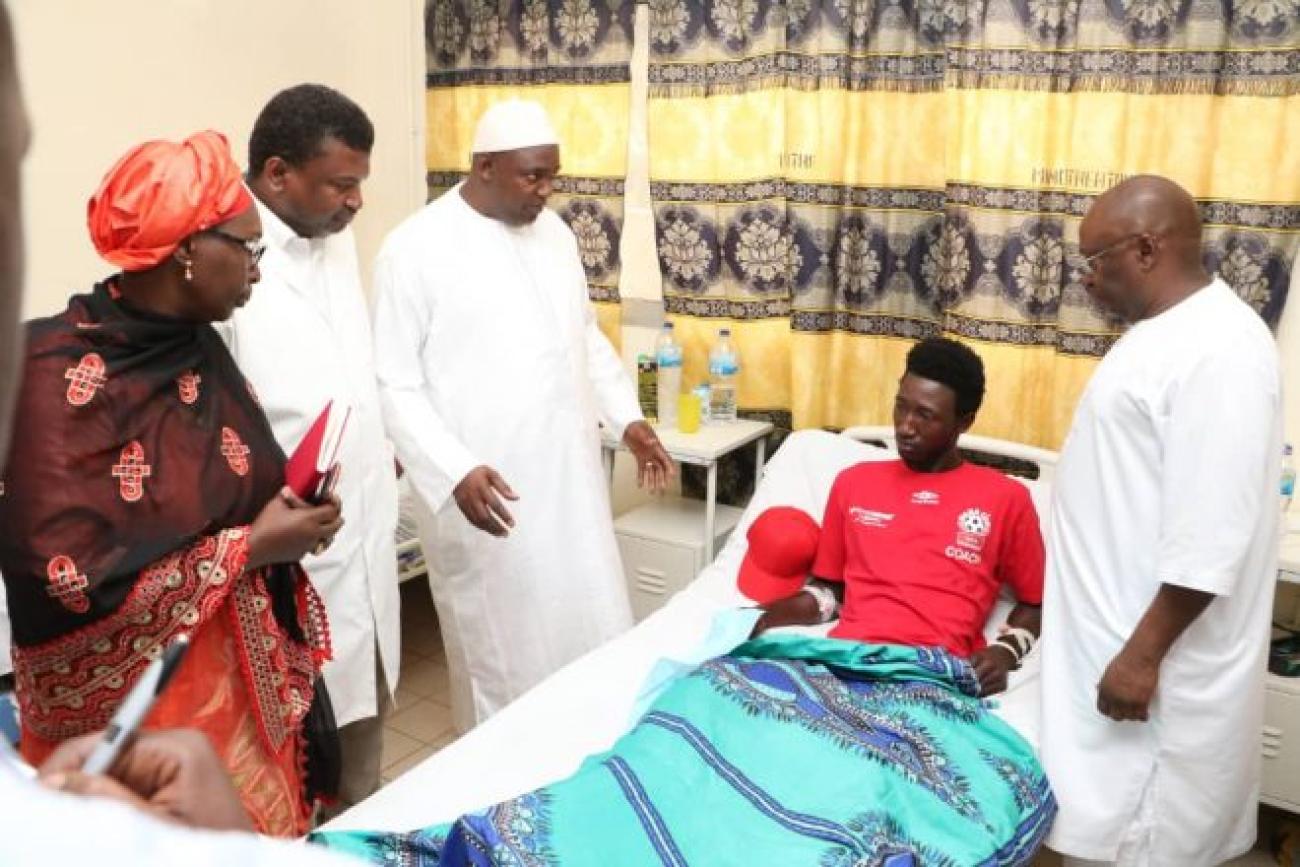The Government, FAO and partners join forces to solve land conflicts

With support of the United Nations Peacebuilding Fund through the project “Addressing Conflicts Over Land and Natural Resources in The Gambia”
The lack of adequate legal and policy structures for effective land tenure governance in The Gambia results in significant destabilizing tensions that affect everyday relations amongst citizens, and communities depending on the same resources for their livelihoods. High population growth and urbanization are worsening the situation. Multiple legal systems,
as well inconsistent and incoherent land conflict management mechanisms which are themselves poorly enforced, are the major obstacles to the peaceful resolution of land conflicts. Over the years, lingering land disputes that remain unsolved have eroded public trust in the land administration system. This frustration and tension has on occasions erupted into violent conflicts that caused loss of human lives and damage to properties.
In line with the government priorities set out in the National Development Plan 2018 – 2021 and the FAO-Gambia Country Programming Framework 2018-2021, the Food and Agriculture Organization of the United Nations (FAO) is helping The Gambian Government to mitigate the challenges. FAO hired the services of a national consultant to assess the “Adequacy of Legal and Policy Frameworks for Effective Land Tenure Governance and Disputes Resolution Mechanisms in The Gambia”. The assessment facilitated the review of existing legislation and policy documents on instruments relevant to the area of land and natural resources management.
FAO supported the activity thanks to the generous support of the United Nations Peacebuilding Fund through the project “Addressing Conflicts Over Land and Natural Resources in The Gambia”. The intervention aims to strengthen the efforts of the Government in formulating and implementing inclusive legal frameworks for Land and Natural Resources (LNR) governance. Furthermore, it also seeks to enhance mechanisms for conflict prevention in communities where LNR conflict related violence has already occurred, and support actions for peacebuilding.
The 18 months project is implemented by FAO in close partnership with the Ministries of Land and Regional Government, Justice, the Department of Forestry, the Department of Livestock Services and the National Livestock Owners Association (NaLOA).
The Draft Assessment Report was validated on 4th November by stakeholders in the Land and Natural Resources sectors in Kololi. The Ministry of Lands and Regional Government and FAO organized the national forum. Addressing the opening ceremony, Mr. Buba Sanyang, Permanent Secretary, Ministry of Lands and Regional Government commended FAO and the UN Peacebuilding Fund for supporting the activity. He explained that the purpose of the assessment is to address major challenges in the governance of land tenure, forests, and other natural resources in the Gambia. He said,
“The key challenges include inadequate legal framework and poor enforcement of existing laws and customary law, as well as limitations of land administration institutions”.
Mr. Mustapha Ceesay, Assistant FAO Country Representative and Head of Programmes reiterated the importance FAO attaches to conflict prevention and the sustainable management of land and natural resources for the attainment of both national and global development priorities.
He said that The Gambia being an agricultural country, with much of its territory devoted to crop production, livestock farming, fisheries, and natural resources exploitation, will naturally experience conflict over land and natural resources. He stated that such conflicts are disagreements and disputes over access, control, and use of land and natural resources. He said,
“These conflicts often emerge because people or communities have different uses for resources such as forests, water, pastures, and land or simply want to manage them in ways that are different from those of other interest groups”.
Mr. Ousman Yarboe, Executive Director, The Association of Non-Governmental Organizations (TANGO) speaking on behalf of the civil society organizations, underscored the importance of the forum. He described current state of conflicts over land and natural resources as a ticking time-bomb which requires urgent and concerted actions to avert an all-out conflict across the country. He called for a thorough review of the issues related to conflicts over land and natural resources in an inclusive and participatory approach not to leave no one behind.






